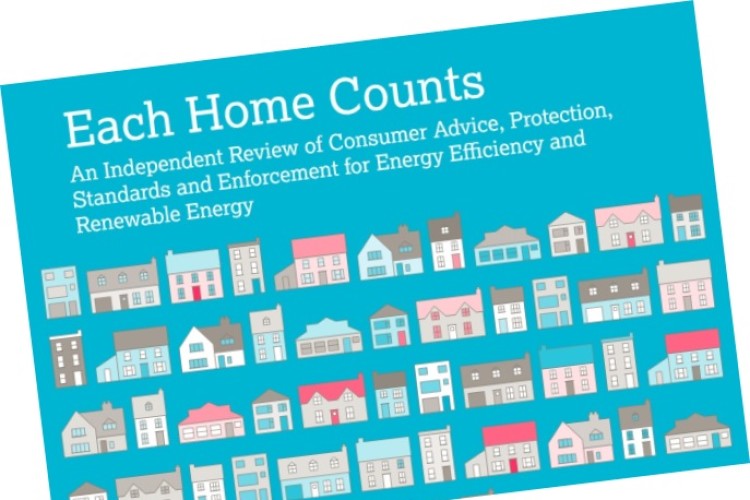The quality mark suggestion is one of the proposals to tackle the plague of cowboys doing shoddy work and ripping off homeowners in energy improvement schemes.
In July 2015 the secretaries of state for what were then the departments of Energy & Climate Change (DECC) and Communities & Local Government (DCLG) commissioned an independent review of consumer advice, protection, standards and enforcement for home energy efficiency and renewable energy measures. The review was led by Peter Bonfield, head of the Building Research Establishment.
The long-awaited Bonfield Review, formally called Each Home Counts, has now been published.
At the heart of the review findings is a recommendation to establish a quality mark for the domestic retrofit sector. This will build further on the recognised consumer brands in the sector, such as the Gas Safe Register, TrustMark and Kitemark, it says.
.png)
To obtain the quality mark, installers, designers and assessors will need to show that they have been certified by an approved certification body, and meet the requirements of three key elements of the quality mark: a code of conduct; defined codes of practice and standards; and a consumer charter.
The Federation of Master Builders liked the idea but wondered why any regulation would be limited only to energy related schemes, and not to all domestic building works.
FMB chief executive Brian Berry said: “Bonfield is right to focus on improving quality – both the technical quality of energy efficiency improvement work and the quality of customer service experienced by the consumer. The energy efficiency and renewable energy sectors, like the wider domestic building industry, remain largely under-regulated, with too few checks to protect consumers from poor quality builders. In the absence of a licensing system for domestic building work, as occurs in Canada and Australia, we must look at other ways of raising standards and boosting quality. Indeed, the FMB’s own strategy for the past few years has been very much aligned with this aspiration. We already ensure that any company wanting to join the FMB undergoes an independent inspection as well as having to adhere to a code of practice, as recommended by Bonfield in his report.”
Brian Berry concluded: “The FMB is also fully behind the drive for higher levels of consumer confidence as this is itself a prerequisite for greater demand for energy efficiency measures. However, this quality and confidence alone will not be sufficient to drive the quantity of low carbon refurbishment which will be necessary to upgrade the UK’s housings stock and make sure the UK meets its legally binding target by 2050. We also need financial incentives from the government to encourage home owners to invest in these improvements. Industry can and will support higher standards but only the government can ensure sufficient demand.”
Got a story? Email news@theconstructionindex.co.uk



